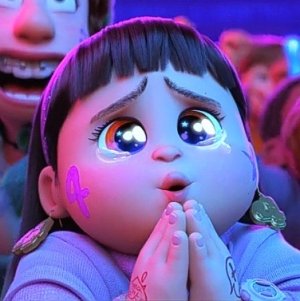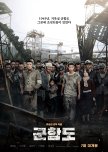As a Song Joong Ki admirer, So Ji Sub lover, Hwang Jun Min fan, Kim Soo Ahn supporter and Lee Jung Hyun fanatic, I definitely had high hopes for The Battleship Island. Prior to watching, I was not exposed to Ryoo Seung Wan's films (I watched his previous works after this) so I wasn't very familiar with his style then—but after my mini-Ryoo Seung Wan marathon, this was a little underwhelming follow-up to Veteran (2015).
Kudos for the wonderful technicalities and truly recreating the real Hashima Island. As with Ryoo's works, the action scenes are impressive—particularly that of So's public bath sequence.
It's a great ensemble, spanning different generations. Hwang's obviously a veteran, one of South Korean's highest paid actions, So, a prominent drama and film actor, Song, one of the nation's sought-after Oppa, Lee, a prominent actress/singer in East Asia and Kim, a rising young actress. It's a dream cast. But the cast can only do so much.
An intriguing premise despite its nationalistic approach. But there's always been this redundancy that seems to spur out of these narratives that are set during the Japanese occupation—we've seen it in Age of Shadows, The Handmaiden, Assassination. Of course, each of these films take a different approach but it also makes me say—again?
Battleship Island lacks...depth and tension. Sure, it had its moments like So's action sequence but it just doesn't have that same spice as say, Age of Shadowswhose 30 minute train sequence moves the story AND character forward. Battleship's characters felt flat. And those with some substance—didn't make it to the end. To me, it felt too dramaticized.
As much as I have a bias for Song and So, they're probably guilty of replication. So had an character but it's not too fleshed out while Song just repeats his DOTS character—what's new from you? Hwang is okay although at times, he is too dramatic. Lee's fine too but again, intriguing but no substance. Kim's particularly better though she cries like 80% of the time.
In war films like this, character drives the film—much more than plot, at least in my opinion. You can have a simple war story but if you have boring characters—it's not enough to cut it. The ending also felt way too..unsatisfying. Sure, it's a film that shows the horrors of war but ultimately, what else?
Ryoo's use of gritty tones and spatial movements plus slick sequences reflect the mood that fit the war aesthetic are impressive though. As well as his use of music particularly to portray irony is also a plus. Also, a really unnecessary love story. Sort of love story. It sort of just didn't make sense.
Kudos for the wonderful technicalities and truly recreating the real Hashima Island. As with Ryoo's works, the action scenes are impressive—particularly that of So's public bath sequence.
It's a great ensemble, spanning different generations. Hwang's obviously a veteran, one of South Korean's highest paid actions, So, a prominent drama and film actor, Song, one of the nation's sought-after Oppa, Lee, a prominent actress/singer in East Asia and Kim, a rising young actress. It's a dream cast. But the cast can only do so much.
An intriguing premise despite its nationalistic approach. But there's always been this redundancy that seems to spur out of these narratives that are set during the Japanese occupation—we've seen it in Age of Shadows, The Handmaiden, Assassination. Of course, each of these films take a different approach but it also makes me say—again?
Battleship Island lacks...depth and tension. Sure, it had its moments like So's action sequence but it just doesn't have that same spice as say, Age of Shadowswhose 30 minute train sequence moves the story AND character forward. Battleship's characters felt flat. And those with some substance—didn't make it to the end. To me, it felt too dramaticized.
As much as I have a bias for Song and So, they're probably guilty of replication. So had an character but it's not too fleshed out while Song just repeats his DOTS character—what's new from you? Hwang is okay although at times, he is too dramatic. Lee's fine too but again, intriguing but no substance. Kim's particularly better though she cries like 80% of the time.
In war films like this, character drives the film—much more than plot, at least in my opinion. You can have a simple war story but if you have boring characters—it's not enough to cut it. The ending also felt way too..unsatisfying. Sure, it's a film that shows the horrors of war but ultimately, what else?
Ryoo's use of gritty tones and spatial movements plus slick sequences reflect the mood that fit the war aesthetic are impressive though. As well as his use of music particularly to portray irony is also a plus. Also, a really unnecessary love story. Sort of love story. It sort of just didn't make sense.
Questa recensione ti è stata utile?


























